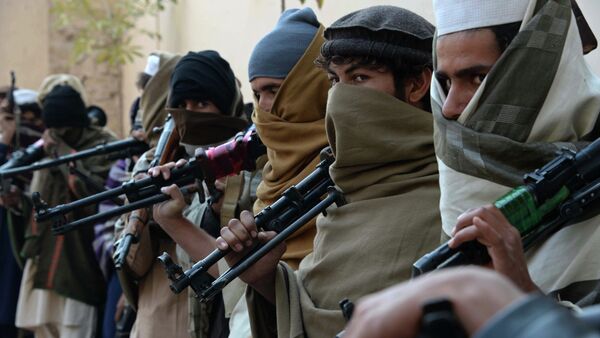“The Taliban is essentially a national movement going back to the 1920s… It got a strong boost during the civil war in Afghanistan, which it wants to turn into an Islamic state,” Boris Dolgov, a senior Arab and Islamic affairs expert in Moscow, told Radio Sputnik.
“By contrast, the Islamic State group is, relatively speaking, a newcomer. Founded in Iraq, it later tried to establish an Islamic caliphate in parts of Iraq and Syria. The group initially fought the Shiites in Iraq and later joined other Islamist groups in Syria out to topple President Bashar Assad always having in mind the creation of a Sunni Islamic state,” Dolgov added.
Unlike the Taliban, which is trying to maintain its influence in Afghanistan and Pakistan, Islamic State, or Daesh is out to create a global caliphate under its control.
“The Taliban is against this and we can now see a consolidation of the anti-Daesh forces which enjoy growing grass-root support,” Boris Dolgov noted.
Daesh, which controls all the resources in the occupied territories in Syria and Iraq, is now setting its sights on Afghanistan where it wants to control the local transit and drug trafficking routes.
Each rival group has its own sponsors in the form of various Islamic foundations all fighting for control of these resources, Dolgov said.
“What once were sporadic shootouts between Taliban and Daesh units may now spill over into an all-out war,” Boris Dolgov said in conclusion.



